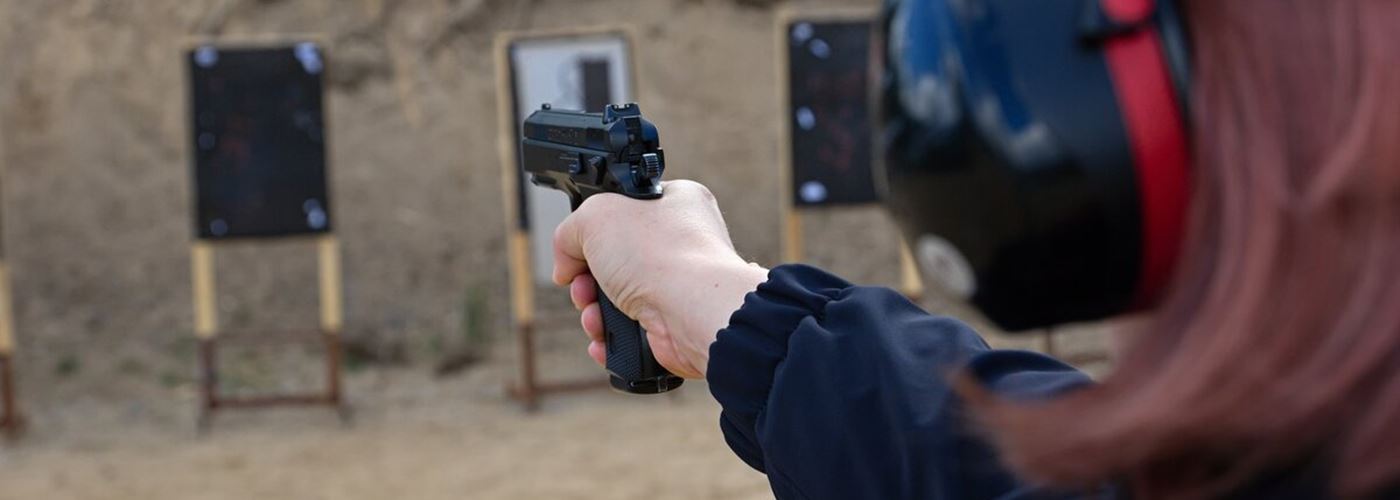
If you’re a concealed carry weapon (CCW) holder like me, you love going to the range and burning through a few boxes of ammo while keeping your accuracy, reloading, and clearing malfunction skills sharp.
However, we often emphasize these shooting fundamentals while ignoring many other lifesaving skills.
It can be overwhelming for new CCW permit holders to attempt to instantly learn everything we must know, so if you’re new to firearms and concealed carrying, I recommend focusing on becoming more situationally aware. Developing this skill will allow you to see threats coming and avoid them.
For the rest of us, focus on one of the following self-defense skills at a time. Once it’s become second nature, begin developing a new one.
Remember, concealed carrying is a lifestyle, so enjoy the journey of learning. Rome wasn’t built in a day, nor were highly skilled CCW practitioners.
Situational Awareness
I’m always amazed at how many people stare at their phones, completely unaware of their surroundings in public.
I’ve waved like a maniac at lifelong friends who never saw me because they were preoccupied with their phones or simply not paying attention to what’s happening around them. I’ve also watched people nearly walk into the street in front of cars because they're so distracted.
I’m not bashing using your phone; I’m on mine more than I like to admit, but being aware of my surroundings was a lesson pounded into my head from my first concealed carry class.
To avoid being a victim, don’t look like an easy target. Keep your head on a swivel, looking for things that seem out of place, whether it’s the car that’s been following you for several turns or the creepy individual that seems to pop up around every corner.
The best way to practice this skill is to get out of your car and take a few seconds to look around and see what’s going on around you, or instead of staring at your phone while standing in line, casually glance around at everything happening. As you practice becoming more situationally aware, it will become second nature.
One-Handed Firearm Manipulation
Proper shooting form dictates that shooters use two hands to control the firearm. However, what happens when you’re injured and only one hand is operational?
As I recently discovered, learning to manipulate your firearm with one hand is a skill worth its weight in gold. I hurt one of my hands while working a few weeks ago, and I couldn’t correctly grip my pistol with my pinky while at the shooting range.
Luckily, it didn’t affect my shooting abilities much that day, but it made me realize that I needed to practice doing everything one-handed. Reloading, racking the slide, clearing a malfunction, and pulling the trigger are all things I’ve practiced with two hands but rarely attempted with one hand.
I was uncertain that I could do all of them one-handed in a high-pressure situation, so I decided to work on this skill for the foreseeable future. I started with the firearm and magazines empty, learning how to insert the magazine and rack the slide with one hand. Once I know I can safely do this, I’ll practice loading dummy rounds into the magazine, loading it, racking the slide, pulling the trigger, and clearing the (intentional) malfunction with one hand.
To help further develop this skill, I’m picking up tips and tricks from former military and law enforcement officers and signing up for advanced firearms training classes. I strongly encourage you to take gun classes on this topic.
Weak Hand Shooting
It was while at the range with an injured hand that it dawned on me that I needed to learn how to shoot with my non-dominant hand.
My dominant hand was injured; thankfully, it was just a broken pinky, and I was able to work around it. However, what if my strong hand wasn’t functioning, and I had to shoot with my weak hand?
I know I wouldn’t be nearly as accurate shooting left-handed, so each time I head to the range, I shoot a few mags with my weak hand and non-dominant eye. It’s been like relearning to shoot all over again.
I watched a movie recently in which the cartel was chasing this guy. As far as we, the viewers, are concerned, he has no shooting experience except for one scene where he grabs a gun for the first time and drops two cartel members without missing a shot while lying on the ground. Watching this scene unfold, I immediately thought how unrealistic it was. I consider myself well-versed in firearms and a decent shot, and I don’t think I could have made those shots without missing them.
I say that to remind you that it’s improbable that you’ll be able to grab a gun and immediately be accurate with it, especially when shooting with your non-dominant hand.
Practice firing your handgun with both your right and left hand.
Hand-To-Hand Fighting
I wrestled in high school. I spent countless hours sweating in a hot wrestling room, getting my butt kicked by the bigger and older competitors. Eventually, those grueling sessions paid off, and my senior year, I made it to the state wrestling championship, where I got throttled by the top athletes in my weight class.
So, while I was decent, I was by no means a champion wrestler. However, at various times while attending college, I had a few larger, inexperienced opponents who had never trained in competitive wrestling challenge me to a match. Eager to prove my skills, I tossed them around, put them on their backs, and contorted them into very uncomfortable positions until they begged for mercy.
Learning to wrestle gave me the confidence to handle individuals much larger than myself. However, wrestling isn’t the most effective way to train for self-defense unless you’re using it to maintain peak physical condition.
When you’re forced to defend yourself, and you don’t have time to draw your concealed weapon, or God forbid you lose control of your 380 ACP CCW, you need robust self-defense skills to handle an armed attacker, whether they have a knife or a gun.
This is when specialized self-defense training becomes critical. Learning advanced hand-to-hand combat techniques will help you disarm the assailant safely and effectively, ensuring personal safety and protecting your family.
Martial arts training is an excellent starting point, particularly disciplines that focus on practical self-defense techniques to safeguard yourself and others.
First Aid
I saved the one that I believe to be the most overlooked for last. While talking with a former Army Combat Medic, he mentioned that the one skill civilians should prioritize is knowing how to use their first aid kit's contents effectively. Many people carry an emergency first aid kit in their car or bag, but most don’t know how to utilize the items inside properly.
Simply carrying a first aid kit isn’t enough!
Learning critical emergency response skills, such as how to assess the situation and determine who requires immediate medical assistance and who can wait until professional help arrives, is life-saving knowledge. Basic CPR certification is great, and my Army Combat Medic buddy strongly recommends mastering how to treat trauma injuries, specifically gunshot and knife wounds, as these are most prevalent in self-defense scenarios.
Parting Shots: Vitally Important CCW Skills
I’ve been involved in several emergency situations, and I’ve always found that maintaining composure is critical to preventing the situation from worsening. Mastering conflict resolution and knowing how to de-escalate a potentially dangerous situation is one of the best skills you can acquire to ensure everyone's safety.
Additionally, the skills mentioned above will significantly contribute to keeping you and your loved ones secure while navigating through this unpredictable world.
Stay safe and stay alert!
